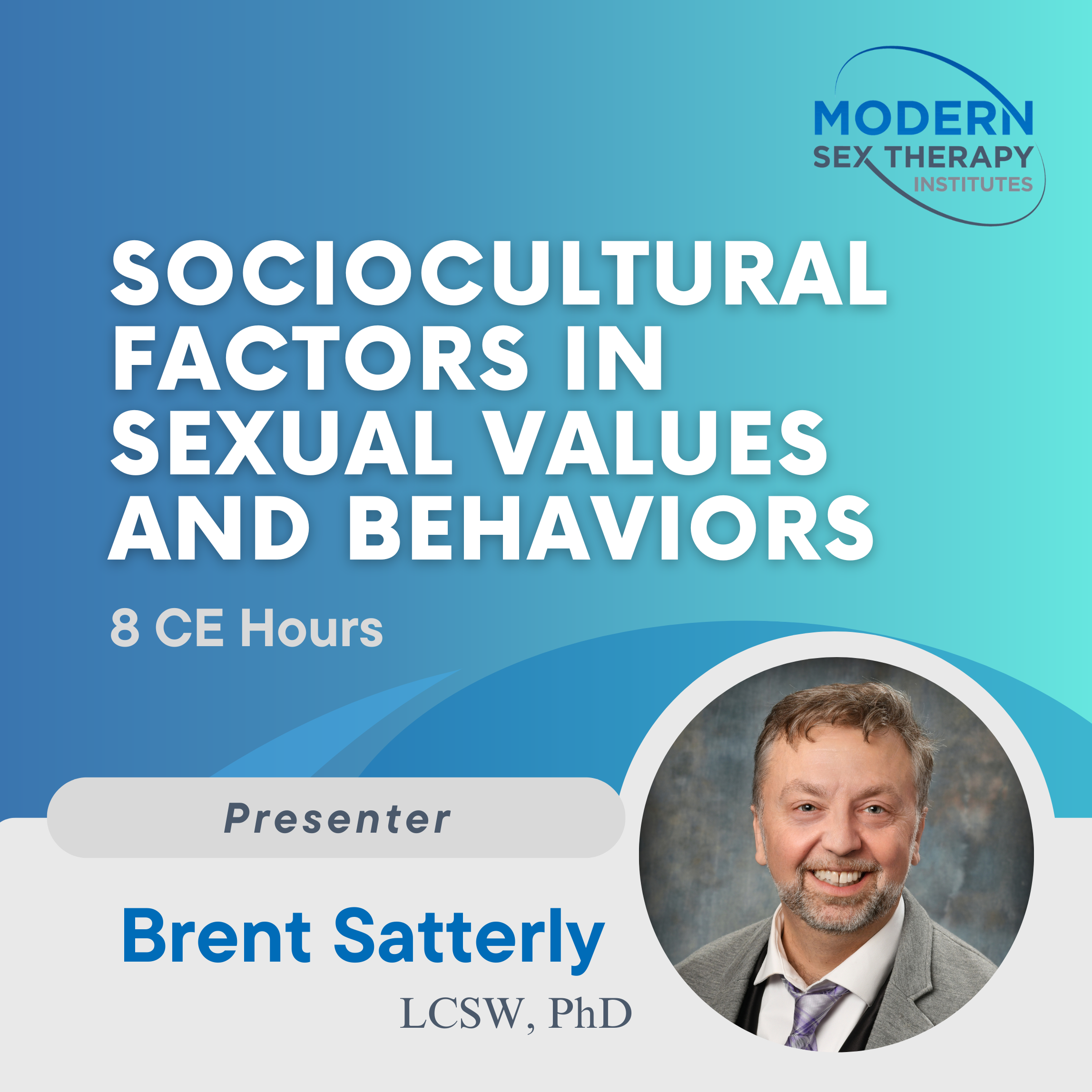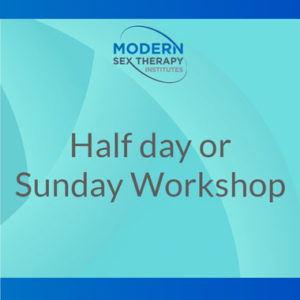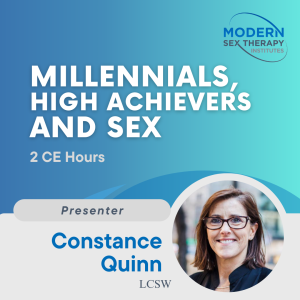Socio-Cultural Factors in Sexual Values and Behaviors (8 CE hours)
$320.00
Presented by: Brent Satterly, PhD
8 CE Hours
Recorded workshop available via video on demand
AASECT Category: Human Sexuality, Section C.
Description:
This workshop is an introduction to socio-cultural factors in sexual values and behavior. This highly engaging and interactive training provides clinicians with the knowledge and skills necessary to develop “value aware” professional practices related to sexuality. Building on the theoretical bases of both Intercultural Studies and Sexology, the training uses the foundation of “Sexological Worldview” (Sitron & Dyson, 2012) to develop awareness of one’s own perspectives on sexuality, to identify the social and cultural underpinnings of those beliefs, to practice hearing the perspectives of clashing belief systems and to develop a relativistic perspective that represents ‘best practice’ in working around sexuality issues in clinical practice.
The workshop provides practical tools for assessing one’s own values and behaviors, a model for contextualizing issues in sexuality, and a practical plan for the ongoing development of understanding and compassion within one’s clinical practice.
The workshop uses interactive learning methods supported by adult learning theory to ensure high levels of not only retention, but also participant engagement, self-efficacy and application.
The goal of this workshop is to develop a practical understanding of the often unexamined but changeable perspectives held by each person about the world around them with regards to sex and sexuality, the ways in which those perspectives guide behaviors, and the ways that clinicians can work effectively from a relativistic perspective to best assist clients in their personal journeys.
Learning Objectives:
- Describe my own values and beliefs related to sex and sexuality
- Differentiate between multiple value sets related to sex and sexuality
- Analyze the social and cultural influences that support differing values about sex and sexuality
- List 4 real world scenarios in which conflicts may arise between the clinician’s and the client’s sexological worldviews
- Develop 2 action plans for both the self and the therapeutic milieu that will help to address or minimize worldview conflicts in practice.
- Describe 2 theoretical approaches of societal framing of sex and sexuality
- Describe differing sexological worldviews in practice
Speaker Bio:
Dr. Brent Satterly is an Associate Professor and the Director of the BSW Program in Widener University’s Center for Social Work Education. He received his Masters of Social Service from Bryn Mawr College and a Doctorate in Human Sexuality Education from the University of Pennsylvania. With over 20 years clinical experience, Dr. Satterly is a Licensed Clinical Social Worker in the state of Pennsylvania and a Certified Sexuality Educator and Certified Sex Therapist through the American Association of Sexuality Educators, Counselors, and Therapists (AASECT). His areas of expertise include clinical work with Gay, Lesbian, Bisexual and Transgender (GLBT) populations, GLBT professional identity management, human sexuality and social work pedagogies, and HIV/AIDS. He is well-published and is a member of good standing in AASECT, the Council on Social Work Education (CSWE), and the Association of Baccalaureate Program Directors in Social Work (BPD).


![Full Weekend [Fri-Sun] (20 hours; 20 CE Hours)](https://modernsextherapyinstitutes.com/wp-content/uploads/2023/04/Full-Weekend-Fri-Sun-20-hours-20-CEs-300x300.jpg)


